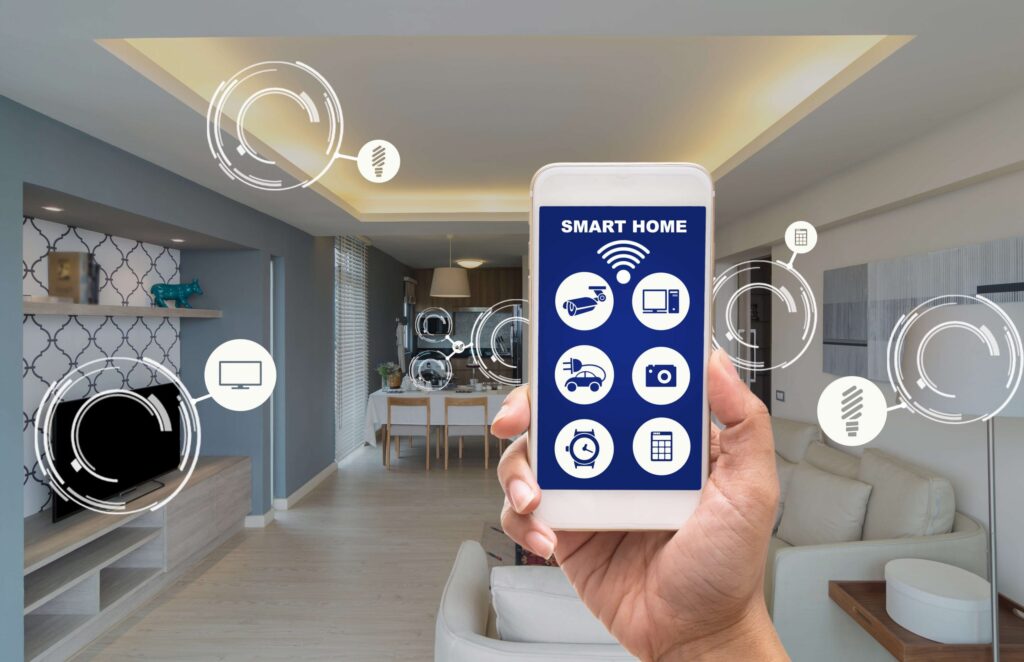I. Introduction
Home security is more than just a trendy topic; it’s essential to a safe and comfortable life. Imagine coming home after a long day without worrying about your home’s security. With varying crime rates and the rising value of personal possessions, having a security plan is no longer optional—it’s a necessity. This article provides a complete guide to understanding home security, from system types to practical tips on making your home a secure haven.

II. What is Home Security?
At its core, home security involves safeguarding your living space. It encompasses systems and strategies that keep your home and valuables safe from intrusions or damage. From alarms and cameras to smart devices that remotely lock your doors, home security offers various customizable options. Finding the right system depends on your specific needs, making it a versatile investment in your safety.
III. Historical Background of Home Security
Home security has ancient roots. Early civilizations used walls and moats to protect their homes. By the 20th century, simple locks and gates became common. As urban burglary rates rose, the demand for effective security solutions grew, leading to the development of modern alarms and cameras. Today, technology allows homeowners to monitor their homes in real-time with smart devices, making protection easier and more reliable.
IV. Key Components of Home Security
Here are the main components that form a robust home security system:
C. Personal Security Measures: Community efforts, like neighborhood watch programs, can significantly enhance security. When neighbors look out for each other, the entire area becomes safer.
A. Physical Barriers: Doors and locks act as the primary defense. A strong deadbolt and reinforced windows can make entry difficult for intruders, adding a reliable layer of protection.
B. Electronic Systems: Alarms alert you to potential threats and can deter intruders. Surveillance cameras let you monitor your property in real time, offering a constant watch over your home even when you’re away.

The Importance of Home Security
Home security provides essential protection. It shields against crime, offering peace of mind that lets you focus on daily life without constant worry. Protecting valuable items—such as family heirlooms or collectibles—adds further motivation to secure your home.
VI. Benefits of Implementing Home Security Systems
Installing a home security system comes with several benefits. For one, it deters burglars; a home with visible security features is less likely to be targeted. Insurance companies often reward this responsible step by offering discounts. A well-secured home can also retain its value better over time.
VII. Drawbacks and Considerations
Home security systems aren’t without their challenges. Installation and maintenance can be costly, especially for advanced systems. Relying heavily on technology introduces risks—glitches and false alarms can be inconvenient and may even lead to fines if authorities are involved.
VIII. Strategies for Effective Home Security
A proactive approach is key. Begin with a security assessment: check your home for vulnerable areas. Choose systems that suit your lifestyle—smart home setups are ideal for frequent travelers, while simpler systems may work best for others. Routine maintenance is also essential; like a car, your security system needs regular check-ups to perform well.
IX. Case Studies: Successful Home Security Implementations
Real-life stories illustrate the impact of effective home security:
Another family invested in a comprehensive system with alarms and cameras after a nearby break-in. Their vigilance paid off when they caught an attempted break-in on camera, helping police track down the suspects.
In one neighborhood, residents launched a neighborhood watch program, using social media to share updates on local safety. This initiative fostered community and significantly improved security.

X. Future Trends in Home Security
Home security is advancing quickly. Smart home devices interconnected through IoT (Internet of Things) allow for unprecedented control over home security. Predictive analytics, a promising new technology, can help anticipate break-in patterns, offering alerts before potential incidents. These advancements promise to make homes even more secure in the years to come.
XI. Conclusion
In conclusion, home security is a crucial investment for peace of mind and safety. Regardless of where you live, taking smart security steps can greatly enhance your living experience. Don’t wait—start securing your home today to enjoy a safer, more comfortable environment.
XII. FAQs
What should I do if my security system triggers a false alarm?
If a false alarm occurs, promptly disarm the system and follow the reset instructions. Regular maintenance can help prevent future false alarms.
What should I do if my security system goes off?
Stay calm and check what triggered the alarm. Follow your system’s emergency procedures, and contact local law enforcement if necessary.
What is the best home security system?
The best system varies by individual needs. Some prefer simple alarm systems, while others opt for comprehensive smart home setups. Assess your specific requirements to find the best fit.
How much does home security cost?
Costs can range widely. Basic DIY kits start around $200, while advanced systems may exceed $2,000, plus installation and monitoring fees.
Are DIY security systems effective?
Yes, DIY systems can be effective if set up correctly. Follow all instructions closely to ensure optimal protection.
How can I make my home more secure?
Start with a security assessment and reinforce physical barriers. Install an alarm system, and consider joining neighborhood watch initiatives for added support.
[…] Top Types of Home Security Systems […]